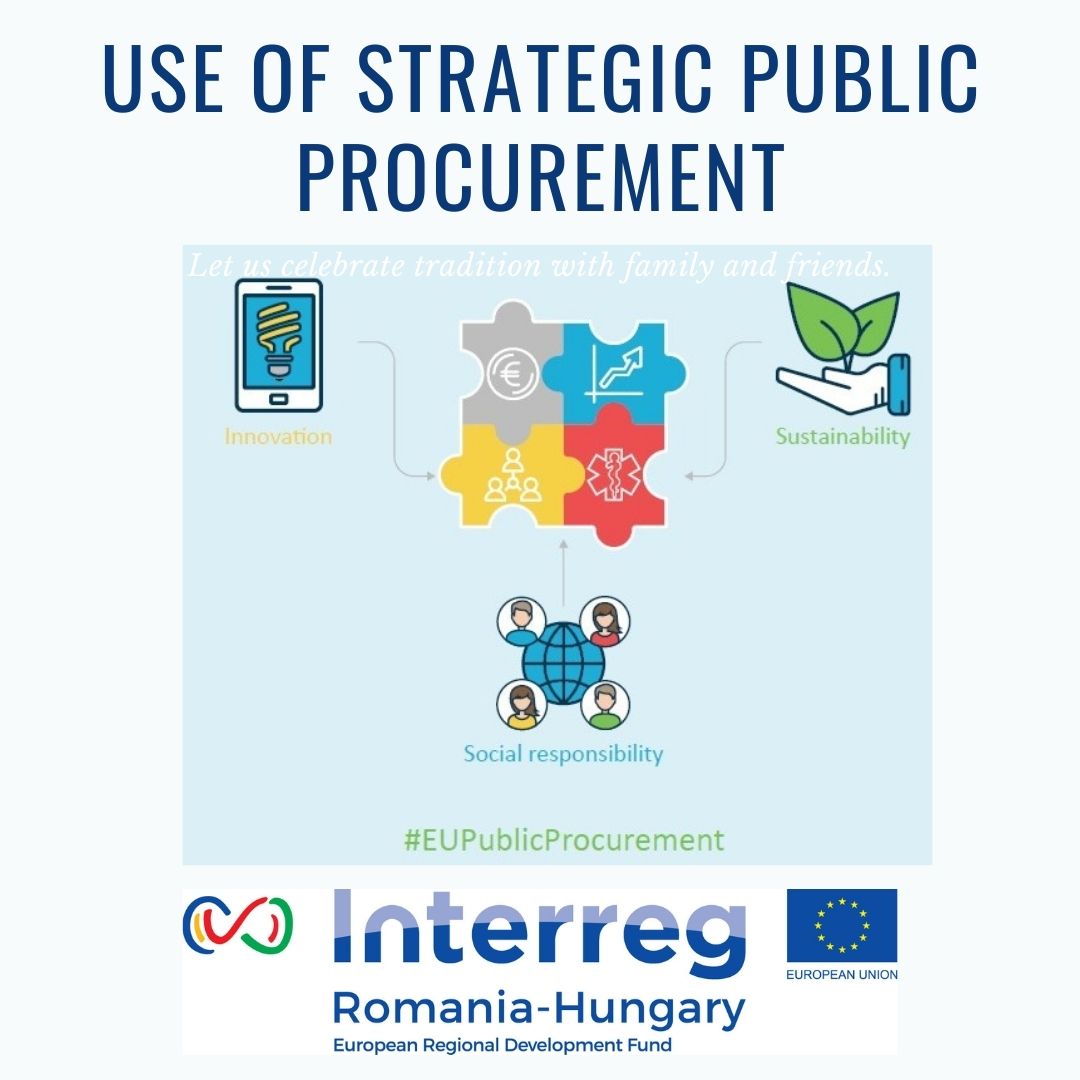


The European Commission encourages the strategic use of public procurement in Interreg programmes and projects, by ensuring the widespread adoption of green, innovative and social criteria to procurements all across Europe.
This type of procurement plays a key role in the EU's attempt to reduce environmental pollution, to become a resource-efficient economy, and to create job opportunities, social and professional inclusion, and better conditions for disabled and disadvantaged people.
From the perspective of Cohesion policy, the strategic use of public procurement is extremely important to ensure the best value for money for the investments made, as well as to support the achievement of policy objectives for a smarter, greener and more social Europe. Moreover, around half of the Cohesion policy funds for 2014-2020 period, are deployed via public procurement procedures making it a fundamental element of the investment ecosystem.
In this context, we encourage all the beneficiaries of our Programme to include, when feasible, environmental (e.g., green public procurement criteria) and social considerations, as well as innovation incentives into their public procurement procedures.
We share below a series of available knowledge, tools and resources linked to this topic:
